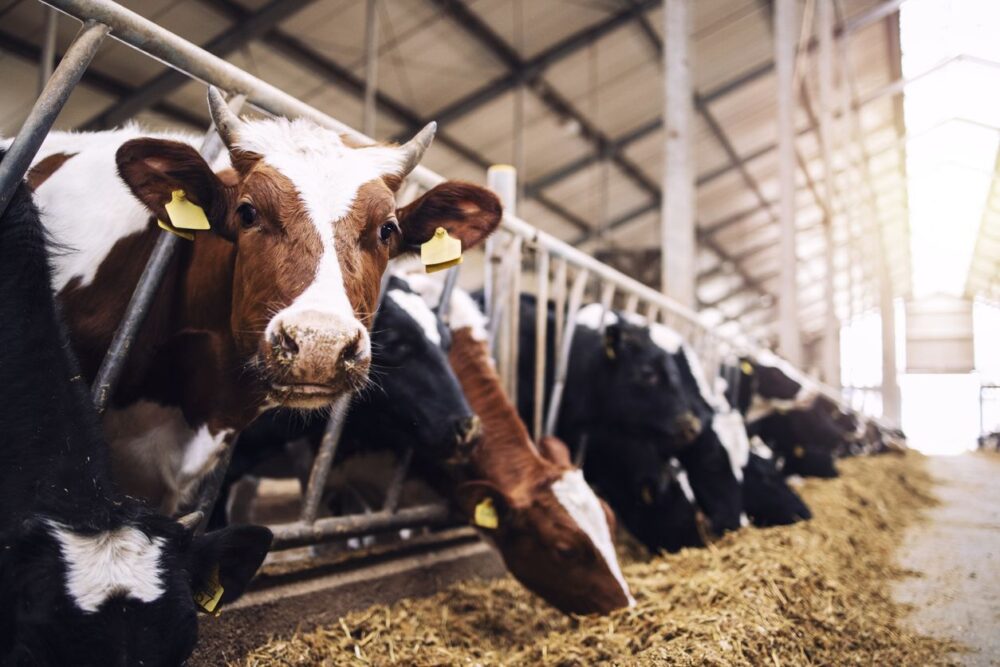- Global investor network FAIRR warns that climate-related costs could “wipe out” profits for half of the world’s largest livestock companies “unless new strategies are urgently adopted.”
- FAIRR’s Climate Risk Tool estimates a $23.7 billion total decrease in earnings before tax in 2030 compared to 2020 levels for 40 of the world’s largest livestock producers.
- The decrease would push 20 of those producers — including JBS, Tyson, Cal-Maine and WH Group — into net operating losses.
- Climate-related cost increases for livestock companies will come from higher feed prices and expected carbon taxes, according to FAIRR’s analysis. While no country has imposed a carbon tax on agriculture emissions yet, carbon-pricing mechanisms for emissions in other industries have become more popular; New Zealand is one of the first countries to propose an ag emissions tax.
Why it matters:
In partnership with scientists from the Intergovernmental Panel on Climate Change, FAIRR has modeled various climate impacts like agricultural productivity in line with a 2°C global temperature rise by 2100.
Climate change will impact crop production, which will contribute to higher feed prices, says FAIRR. These price hikes will account for 5% of the cost rise for livestock companies; expected carbon taxes on emissions from livestock production will make up 4% of the cost rise.
- North American-headquartered Tyson Foods could see profits fall by over $4.3 billion in 2030 compared to 2020. In this scenario, the company would operate at a net loss compared to 2020 levels with a profit margin of negative 0.9%.
- US-based egg producer Cal-Maine would take a $354 million hit to profits and see a profit margin of negative 13.1%.
- In Brazil, beef supplier JBS would see profits fall by $5 billion and be operating at a negative 0.3% profit margin.
- Chinese pork producer WH Group would see profits reduced by $2.5 billion, with a negative 2.7% profit margin.
FAIRR says this scenario is “realistic” given IPCC’s recent reporting that global temperatures “are likely to reach 1.5C above pre-industrial levels in the near-term, with carbon emissions continuing to rise.”
All of this translates to potential price hikes for millions of customers and consumers, since these companies supply the bulk of the world’s animal protein. For example, JBS says it can process more than 200,000 cattle, 500,000 hogs, 45 million chickens and 80,000 small stock (e.g., lambs, goats, etc.) per week.
FAIRR’s model highlights companies’ potential to offset these cost increases with climate mitigation strategies. As yet, just 11 of the 40 companies named in FAIRR’s analysis have publicly disclosed how they plan to mitigate risk. A mere six of those 40 companies have published a climate scenario analysis, which is “widely regarded as a useful tool for planning effective climate risk mitigation strategies.”
Future profitability, not to mention consumers’ grocery bills, relies on these companies’ ability to mitigate these risks — sooner rather than later.





